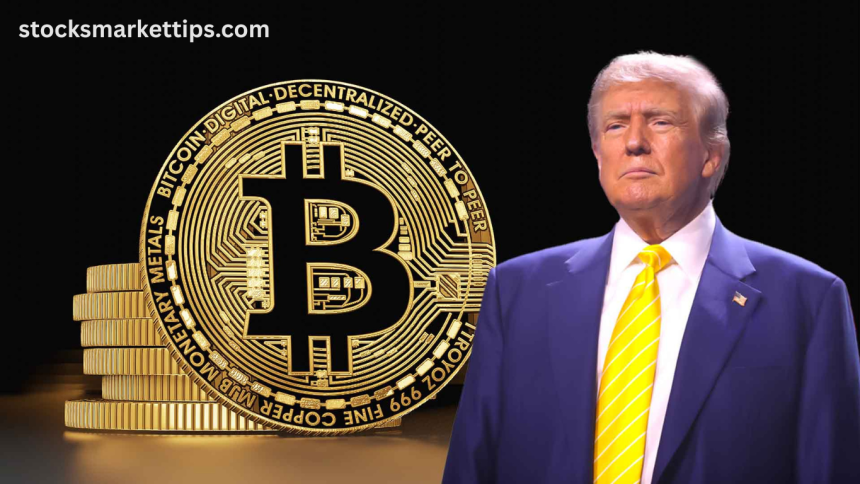As former President Donald Trump hints at returning to the White House, his stance on tariffs resurfaces with full force. Proposals of aggressive import duties, especially on Chinese goods, are gaining attention once again. While markets brace for potential economic shifts, crypto analysts are eyeing something different: Bitcoin’s evolving narrative.
The Inflation Hedge Conversation Reignited
Historically, Bitcoin has been considered “digital gold” by some and a speculative asset by others. Yet, amid renewed trade war fears, the asset’s potential to counter inflation is being revisited. According to a leading analyst at Messari, these tariffs could be the catalyst that nudges Bitcoin firmly into the inflation hedge category.
Understanding the Tariff-Bitcoin Connection
Rising tariffs often lead to higher consumer prices. When import costs surge, inflation typically follows. This scenario has investors looking for stores of value. Bitcoin, decentralized and limited in supply, begins to stand out as a potential buffer against weakening fiat currency, especially if inflation fears materialize.
Bitcoin’s Behavior in Past Economic Shifts
During COVID stimulus rollouts and global supply chain disruptions, Bitcoin responded in a volatile but often upward manner. Analysts recall its price movement alongside CPI jumps. While not always predictable, the pattern is gaining academic and institutional interest, making it harder to ignore in macroeconomic contexts.
Messari’s Viewpoint: A Turning Point
Messari’s research arm suggests that the intersection of political change and economic pressure may finally give Bitcoin a consistent role. With tariffs potentially raising inflation rates, investors may flock to assets with deflationary properties. Bitcoin’s predictable issuance schedule could gain appeal in this landscape.
Read More : Bitcoin Hits $85K Amid Volatile Wall Street Week
Wall Street and Institutional Sentiment Shift
Financial institutions previously hesitant toward crypto are now reconsidering. ETFs, custody solutions, and compliance tools have evolved. If tariffs spike inflation, traditional hedges like gold may compete with a digital counterpart, prompting even more money to enter Bitcoin markets.
Public Awareness and Market Movement
Retail investors are increasingly aware of macroeconomic narratives. Social media, influencers, and platforms like X and YouTube shape real-time opinion. The idea of Bitcoin as a hedge isn’t just institutional now—it’s entering everyday conversations. Tariff-driven inflation could amplify that discourse.
Future Implications for Crypto Markets
As geopolitical risks rise, Bitcoin may become a central player in hedging strategies. More governments, hedge funds, and corporations could see value in holding BTC. The tariffs might not just influence trade policy—they could reshape the global financial strategy toward digital assets.
Frequently Asked Questions
How do Trump’s tariffs influence inflation?
Tariffs increase the cost of imported goods, which can lead to higher consumer prices and contribute to inflation.
Why is Bitcoin considered an inflation hedge?
Bitcoin has a fixed supply and decentralized nature, making it resistant to monetary debasement, similar to gold.
What is Messari’s role in crypto analysis?
Messari is a leading crypto research firm providing insights into blockchain trends, asset behavior, and macroeconomic impacts.
Can Bitcoin truly replace gold as a hedge?
While it’s not a perfect replacement, Bitcoin offers unique advantages like portability, transparency, and global access.
Has Bitcoin ever responded to inflation before?
Yes, during past inflationary events, such as during COVID stimulus spending, Bitcoin showed upward price movement.
What risks exist if investors flock to Bitcoin during tariff-induced inflation?
Volatility, regulatory uncertainty, and security risks remain key concerns for both retail and institutional investors.
Could Bitcoin adoption increase if tariffs escalate?
Rising tariffs might prompt more investors to explore Bitcoin as an alternative store of value.
What other assets compete with Bitcoin as inflation hedges?
Gold, real estate, commodities, and inflation-linked bonds are traditional options, but Bitcoin is gaining attention.
Conclusion
The return of tariff heavy trade policies could reshape inflation expectations worldwide. As the cost of goods rises, investors may seek new stores of value. Bitcoin, with its fixed supply and decentralized framework, offers a fresh angle in financial hedging. If political and economic forces align, this may mark a shift in how Bitcoin is perceived—not just as an asset, but as a shield against monetary erosion.




